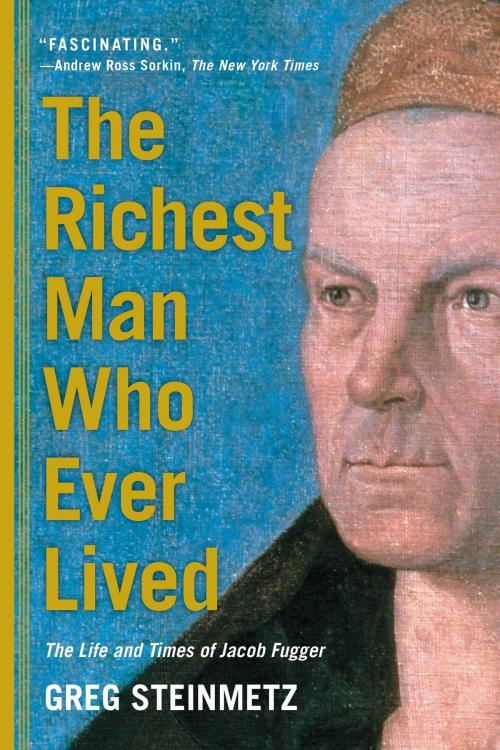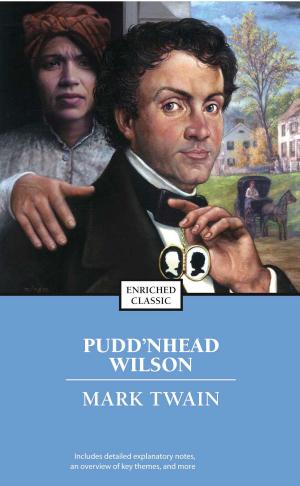The Richest Man Who Ever Lived
The Life and Times of Jacob Fugger
Nonfiction, History, European General, Biography & Memoir, Business| Author: | Greg Steinmetz | ISBN: | 9781451688573 |
| Publisher: | Simon & Schuster | Publication: | August 4, 2015 |
| Imprint: | Simon & Schuster | Language: | English |
| Author: | Greg Steinmetz |
| ISBN: | 9781451688573 |
| Publisher: | Simon & Schuster |
| Publication: | August 4, 2015 |
| Imprint: | Simon & Schuster |
| Language: | English |
“A colorful introduction to one of the most influential businessmen in history” (The New York Times Book Review), Jacob Fugger—the Renaissance banker “who wrote the playbook for everyone who keeps score with money” (Bryan Burrough, author of Days of Rage).
In the days when Columbus sailed the ocean and Da Vinci painted the Mona Lisa, a German banker named Jacob Fugger became the richest man in history.
Fugger lived in Germany at the turn of the sixteenth century, the grandson of a peasant. By the time he died, his fortune amounted to nearly two percent of European GDP. In an era when kings had unlimited power, Fugger dared to stare down heads of state and ask them to pay back their loans—with interest. It was this coolness and self-assurance, along with his inexhaustible ambition, that made him not only the richest man ever, but a force of history as well. Before Fugger came along it was illegal under church law to charge interest on loans, but he got the Pope to change that. He also helped trigger the Reformation and likely funded Magellan’s circumnavigation of the globe. His creation of a news service gave him an information edge over his rivals and customers and earned Fugger a footnote in the history of journalism. And he took Austria’s Habsburg family from being second-tier sovereigns to rulers of the first empire where the sun never set.
“Enjoyable…readable and fast-paced” (The Wall Street Journal), The Richest Man Who Ever Lived is more than a tale about the most influential businessman of all time. It is a story about palace intrigue, knights in battle, family tragedy and triumph, and a violent clash between the one percent and everybody else. “The tale of Fugger’s aspiration, ruthlessness, and greed is riveting” (The Economist).
“A colorful introduction to one of the most influential businessmen in history” (The New York Times Book Review), Jacob Fugger—the Renaissance banker “who wrote the playbook for everyone who keeps score with money” (Bryan Burrough, author of Days of Rage).
In the days when Columbus sailed the ocean and Da Vinci painted the Mona Lisa, a German banker named Jacob Fugger became the richest man in history.
Fugger lived in Germany at the turn of the sixteenth century, the grandson of a peasant. By the time he died, his fortune amounted to nearly two percent of European GDP. In an era when kings had unlimited power, Fugger dared to stare down heads of state and ask them to pay back their loans—with interest. It was this coolness and self-assurance, along with his inexhaustible ambition, that made him not only the richest man ever, but a force of history as well. Before Fugger came along it was illegal under church law to charge interest on loans, but he got the Pope to change that. He also helped trigger the Reformation and likely funded Magellan’s circumnavigation of the globe. His creation of a news service gave him an information edge over his rivals and customers and earned Fugger a footnote in the history of journalism. And he took Austria’s Habsburg family from being second-tier sovereigns to rulers of the first empire where the sun never set.
“Enjoyable…readable and fast-paced” (The Wall Street Journal), The Richest Man Who Ever Lived is more than a tale about the most influential businessman of all time. It is a story about palace intrigue, knights in battle, family tragedy and triumph, and a violent clash between the one percent and everybody else. “The tale of Fugger’s aspiration, ruthlessness, and greed is riveting” (The Economist).















